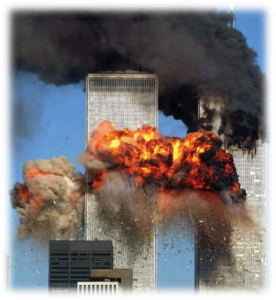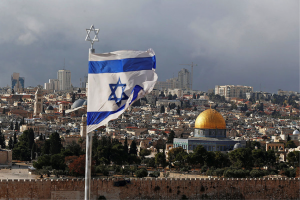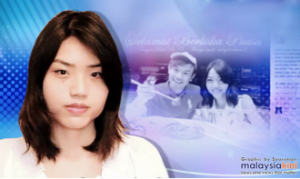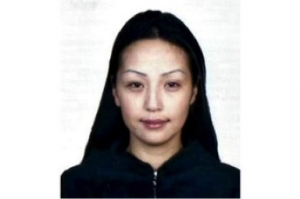Written by Putera Muhammad
The annexation of Crimea by the Russian Federation took place in the aftermath of the 2014 Ukrainian revolution. On 22–23 February, Russian President Vladimir Putin convened an all-night meeting with security services chiefs to discuss extrication of deposed President, Viktor Yanukovych, and at the end of that meeting Putin remarked that “we must start working on returning Crimea to Russia.” Russia sent in soldiers on February 27, 2014. Crimea held a referendum. The legitimacy of the referendum has been questioned by the international community on both legal and procedural grounds.
International reactions to the annexation of Crimea by the Russian Federation have almost always been condemnatory of Russia’s decision to intervene, supportive of Ukraine’s sovereignty and territorial integrity, while also supportive of finding a quick end to the crisis. The United States and the European Union threatened and later enacted sanctions against Russia for its role in the crisis, and urged Russia to withdraw. Russia has accused the United States and the EU of funding and directing the revolution and retaliated to the sanctions by imposing its own.
Malaysia through its Minister of Foreign Affairs views with deep concern the developments in Ukraine, particularly the situation in the Crimean peninsula. Given Malaysia’s friendly relations with Russia and Ukraine, the country urge both to work towards a peaceful resolution of the issues between them. Malaysia also hopes that both sides would adopt a moderate approach and find a mutually acceptable solution. The interest, welfare and security of the people of Ukraine must be given top-most priority while taking into account the implications on the overall stability and peace in the region. Malaysia also supports all peaceful efforts including international diplomatic initiatives aimed at resolving the crisis situation in Ukraine. All parties involved must respect the rule of law, act responsibly and aim towards finding a peaceful settlement
Media portrayals of the Ukrainian crisis, including 2014 unrest and the 2014 Ukrainian revolution following the Euromaidan movement, differed widely between Ukrainian, western and Russian media. The Russian, the Ukrainian, and the Western media were all, to various degrees, accused of propagandizing, and of waging an information war during their coverage of the events. Russian channels were repeatedly criticized for the use of misleading images, false narratives, misrepresentation, suppression, and fabricated news stories, such as a child’s crucifixion and the death of a 10-year-old in shelling. The BBC reported that Russian states television “appears to employ techniques of psychological conditioning designed to excite extreme emotions of aggression and hatred in the viewer”, which according to The Guardian, is part of a coordinated “informational-psychological war operation”.
A regular theme in the Russian media was that the Ukrainian army, which has many Russian-speaking members, was committing “genocide” against Russian-speakers and that they strongly desired Russia to “protect” them against Kiev. This presentation contradicted a poll showing that less than 20% of eastern residents wanted Russia’s protection. They supported Russia’s denials of involvement in the Crimean crisis, until Vladimir Putin boasted about the key role of Russian soldiers, and continue denying its involvement in the war in Donbass, despite evidence that Russia regularly shelled across the border.
Many in the Western media described Ukrainian society as deeply “divided”. Most reported the Euromaidan as a protest movement against corruption and for democracy, with a minority presence of far-right groups, though some suggested that they played the decisive role in armed confrontations. Ukrainian President Viktor Yanukovych’s accumulation of wealth received coverage. Moscow’s claims of fascism and western conspiracies were often included for balance.
Russian president Vladimir Putin was described variously as a “bully, “imperialist,” and a “brilliant” and skilled leader. As of December 2014, BBC News and Reuters take no position on whether Russia is a party to the armed conflict, saying simply that Russia is “accused” by “Ukraine and its Western allies.” A few days after the OSCE’s Observer Mission wrote that it “continued to observe high numbers of dumper trucks transporting coal from the Luhansk region to the Russian Federation,” Reuters reported on Russia’s offer to sell coal to Ukraine, saying “months of fighting a pro-Russian uprising have disrupted coal supplies” but not mentioning the OSCE’s observations.
In 2015, the BBC and The Guardian continued to portray Odessa and Kharkiv as deeply divided, despite polls showing that supporters of separatism or joining Russia were a small minority. Western media avoided describing anti-Ukrainian foreign fighters as foreigners invading Ukraine, preferring to describe them as “rebels” or “separatists”. The Daily Telegraph described a Russian citizen, who had no connection to Ukraine prior to taking up arms against its government, as a “pro-Russian rebel”.
As a country that has a good relationship with Ukraine and Russia, Malaysian government and media chose not to take any sides and become neutral on the reporting. Many reports are from agency such as Reuters and AFP for instance the reports that was published in The Star and News Straits Times newspaper and online portal during the phase
On a personal view, it is a correct action by Malaysian media to be neutral in reporting the issue to maintain relationship with both country. Media did differentiate between right and wrong at their discretion. Many forms of journalism allow the author to state a certain opinion – like the editorial in a newspaper or magazine. Feature stories also reveal an author’s bias. And, let’s not forget that media are gatekeepers. Editorial offices always filter the news for dissemination. Mainly they filter by relevance. But not only. It is a common practice to keep a low profile on unpleasant topics – readers/viewers preferred not to be disturbed by certain “truths” that don’t fit to their world view.
 New York Times reported that during the tragedy of September 2011, there were four coordinated aircraft hijackings. The hijackers belonged to the al-Qaida terrorist network. They used knives and box-cutters to kill and hurt the passengers and pilots and then seize the hijacked aircraft. They also used the aircraft to destroy preselected targets. The attacks happened on the morning of Tuesday, September 11, 2001. It killed more than 3000 victims, injured over 6,000 others and caused $10 billion in infrastructure and property damage.
New York Times reported that during the tragedy of September 2011, there were four coordinated aircraft hijackings. The hijackers belonged to the al-Qaida terrorist network. They used knives and box-cutters to kill and hurt the passengers and pilots and then seize the hijacked aircraft. They also used the aircraft to destroy preselected targets. The attacks happened on the morning of Tuesday, September 11, 2001. It killed more than 3000 victims, injured over 6,000 others and caused $10 billion in infrastructure and property damage. New Straits Times, in its report said, Samantha will be competing against 41 other delegates in the 66th edition of the popular international event in Las Vegas on November, 26. A model since 17, Samantha’s career has seen her living in the United States, Brazil, India and Thailand. She has also featured in commercials and movies in Indonesia and China, recently.
New Straits Times, in its report said, Samantha will be competing against 41 other delegates in the 66th edition of the popular international event in Las Vegas on November, 26. A model since 17, Samantha’s career has seen her living in the United States, Brazil, India and Thailand. She has also featured in commercials and movies in Indonesia and China, recently.


